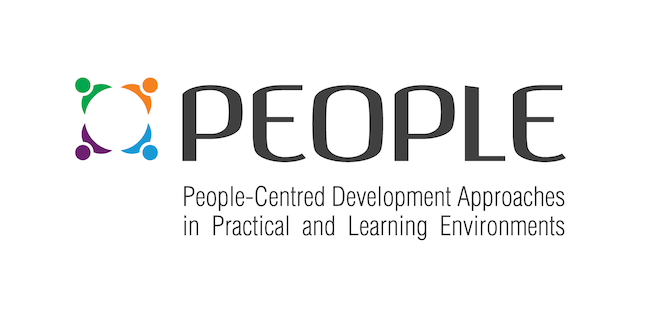
Call for proposals
PEOPLE (People-Centred Development Approaches in Practical and Learning Environments) is an international project co-funded by the by the European Union under the Erasmus+ Programme (Cooperation for innovation and the exchange of good practices, Knowledge Alliances for higher education).
Duration
1.11.2016 do 31.10.2019
Total eligible costs
€ 905.887,00
Contact person at IRI UL
Project Consortium
- Inovacijsko-razvojni inštitut Univerze v Ljubljani (coordinator, Slovenia)
- ZRC SAZU (Slovenia)
- Podjetje Metronik (Slovenia)
- Univerza Durham (United Kingdom)
- Podjetje Kemuri (United Kingdom (1 August 2018 – 31 October 2019))
- Durham County Council (United Kingdom (1 August 2018 – 31 October 2019))
- Univerza Vrije Amsterdam (The Netherlands)
- Podjetje Alliander (The Netherlands)
- Karlova Univerza v Pragi (Czech Republic)
- Podjetje VUPS (Czech Republic)
Key Challenges
At the core of the project is the idea that understanding people should become an indispensable part of industrial development processes, as a means to achieve practical-based education as well as new categories of products, services, or business strategies that truly address people’s needs and lead to sustainable innovation.
The PEOPLE project addresses 3 urgent challenges for the European Union:
- the underemployment of European graduates in sociology, psychology and anthropology fields;
- a lack of social science expertise in the sustainable living and energy sector;
- the need for better-engaged social science learning in Higher Education.
Purpose of the project
The project focuses on the mismatch between qualifications gained by humanities and social science students and skills expected from graduates by employers in industry. Particularly in the fields of anthropology, psychology, sociology, and related disciplines, a lack of practical experiences among recent graduates often diminishes their employability in the industry sector and contributes to high overall rates of unemployment among youth in the European Union.
Key Objectives
The key innovative contribution is the implementation of People-centred Learning Cycles as a novel pedagogical approach that brings together interdisciplinary groups of students, faculty educators and industry professionals to solve real-life business challenges. New learning modules will be embedded in degree programmes, enabling students to gain valuable practical skills to complement their theoretical education, while demonstrating the value of that education for industry.
PEOPLE project therefore addresses the immediate needs of both graduates and companies. The former will apply the skills learned through their training in sociology, psychology, and anthropology to real-life and work situations, as well as gain a unique research experience and acquire new skills and competences. The latter will benefit through improved products, services, and processes and developing innovation in rapidly evolving technology. At the same time, our alliances will contribute to the recognition and higher employability of young and perspective humanities and social sciences cadres in industry.
The project will have long-lasting impact on higher education institutions and society at large by improving the relevance of social science teaching and research: taking into account the needs of the industry, displaying the applied value of anthropology, psychology, sociology, and related disciplines, providing graduates with relevant skills, as well as promoting their employment in the business and industry sector.


